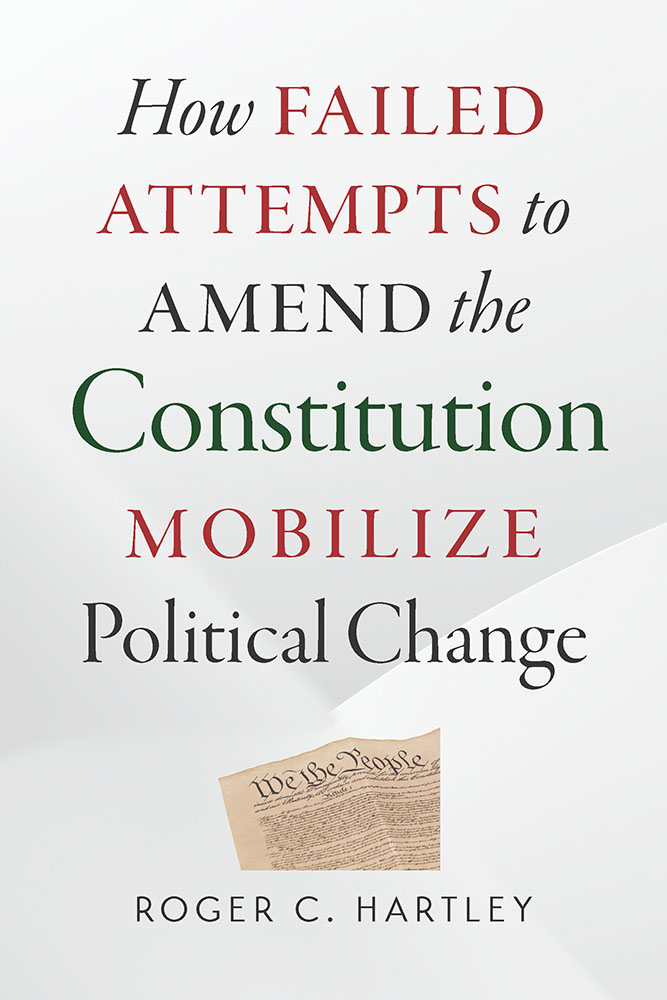Vanderbilt University Press has released
How Failed Attempts to Amend the Constitution Mobilize Political Change (August 2017), by
Roger C. Hartley (Catholic University of America). A description from the Press:
Since the Constitution's ratification, members of Congress, following
Article V, have proposed approximately twelve thousand amendments, and
states have filed several hundred petitions with Congress for the
convening of a constitutional convention. Only twenty-seven amendments
have been approved in 225 years. Why do members of Congress continue to
introduce amendments at a pace of almost two hundred a year?
This
book is a demonstration of how social reformers and politicians have
used the amendment process to achieve favorable political results even
as their proposed amendments have failed to be adopted. For example, the
ERA "failed" in the sense that it was never ratified, but the
mobilization to ratify the ERA helped build the feminist movement (and
also sparked a countermobilization). Similarly, the Supreme Court's ban
on compulsory school prayer led to a barrage of proposed amendments to
reverse the Court. They failed to achieve the requisite two-thirds
support from Congress, but nevertheless had an impact on the political
landscape. The definition of the relationship between Congress and the
President in the conduct of foreign policy can also be traced directly
to failed efforts to amend the Constitution during the Cold War.
Roger Hartley examines familiar examples like the ERA, balanced budget amendment proposals, and pro-life attempts to overturn Roe v. Wade,
but also takes the reader on a three-century tour of lesser-known
amendments. He explains how often the mere threat of calling a
constitutional convention (at which anything could happen) effected
political change.
A few blurbs:
"A fascinating and important examination of the political significance
of the constitutional amendment process. Although the Constitution has
been amended only seventeen times since 1791, Hartley persuasively shows
that the amendment process is crucial as a way of mobilizing people and
furthering social change. Hartley's book is clearly written and very
impressive in its thoroughness. This will be a key work in all future
discussions of the constitutional amendment process."—Erwin Chemerinsky
"Conventional wisdom holds that it's impossible to amend the
Constitution. The wisdom is right, as a formal matter. But Roger
Hartley's compelling account demonstrates that such efforts, even though
they virtually always fall short of a formal amendment, have been
critical factors in advancing constitutional rights in less formal ways.
An invaluable lesson in how one can win through losing."—David Cole
More information is available
here.
